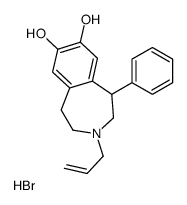Age-related defects in spatial memory are correlated with defects in the late phase of hippocampal long-term potentiation in vitro and are attenuated by drugs that enhance the cAMP signaling pathway.
M E Bach, M Barad, H Son, M Zhuo, Y F Lu, R Shih, I Mansuy, R D Hawkins, E R Kandel
Index: Proc. Natl. Acad. Sci. U. S. A. 96(9) , 5280-5, (1999)
Full Text: HTML
Abstract
To study the physiological and molecular mechanisms of age-related memory loss, we assessed spatial memory in C57BL/B6 mice from different age cohorts and then measured in vitro the late phase of hippocampal long-term potentiation (L-LTP). Most young mice acquired the spatial task, whereas only a minority of aged mice did. Aged mice not only made significantly more errors but also exhibited greater individual differences. Slices from the hippocampus of aged mice exhibited significantly reduced L-LTP, and this was significantly and negatively correlated with errors in memory. Because L-LTP depends on cAMP activation, we examined whether drugs that enhanced cAMP would attenuate the L-LTP and memory defects. Both dopamine D1/D5 receptor agonists, which are positively coupled to adenylyl cyclase, and a cAMP phosphodiesterase inhibitor ameliorated the physiological as well as the memory defects, consistent with the idea that a cAMP-protein kinase A-dependent signaling pathway is defective in age-related spatial memory loss.
Related Compounds
| Structure | Name/CAS No. | Molecular Formula | Articles |
|---|---|---|---|
 |
SKF 77434 hydrobromide
CAS:300561-58-4 |
C19H22BrNO2 |
|
Dopamine-dependent desensitization of dopaminergic signaling...
2002-11-15 [J. Neurosci. 22(22) , 9841-9, (2002)] |
|
Comparison of the D1-dopamine agonists SKF-38393 and A-68930...
1992-08-01 [J. Pharmacol. Exp. Ther. 262(2) , 855-65, (1992)] |
|
Preventive medicine residents: a national survey.
1991-01-01 [Am. J. Prev. Med. 7(6) , 445-9, (1991)] |
|
Oxidant-induced cardiomyocyte injury: identification of the ...
2007-11-01 [Int. J. Mol. Med. 20(5) , 749-61, (2007)] |
|
Drug discrimination in methamphetamine-trained monkeys: agon...
1998-06-01 [J. Pharmacol. Exp. Ther. 285 , 1163-1174, (1998)] |